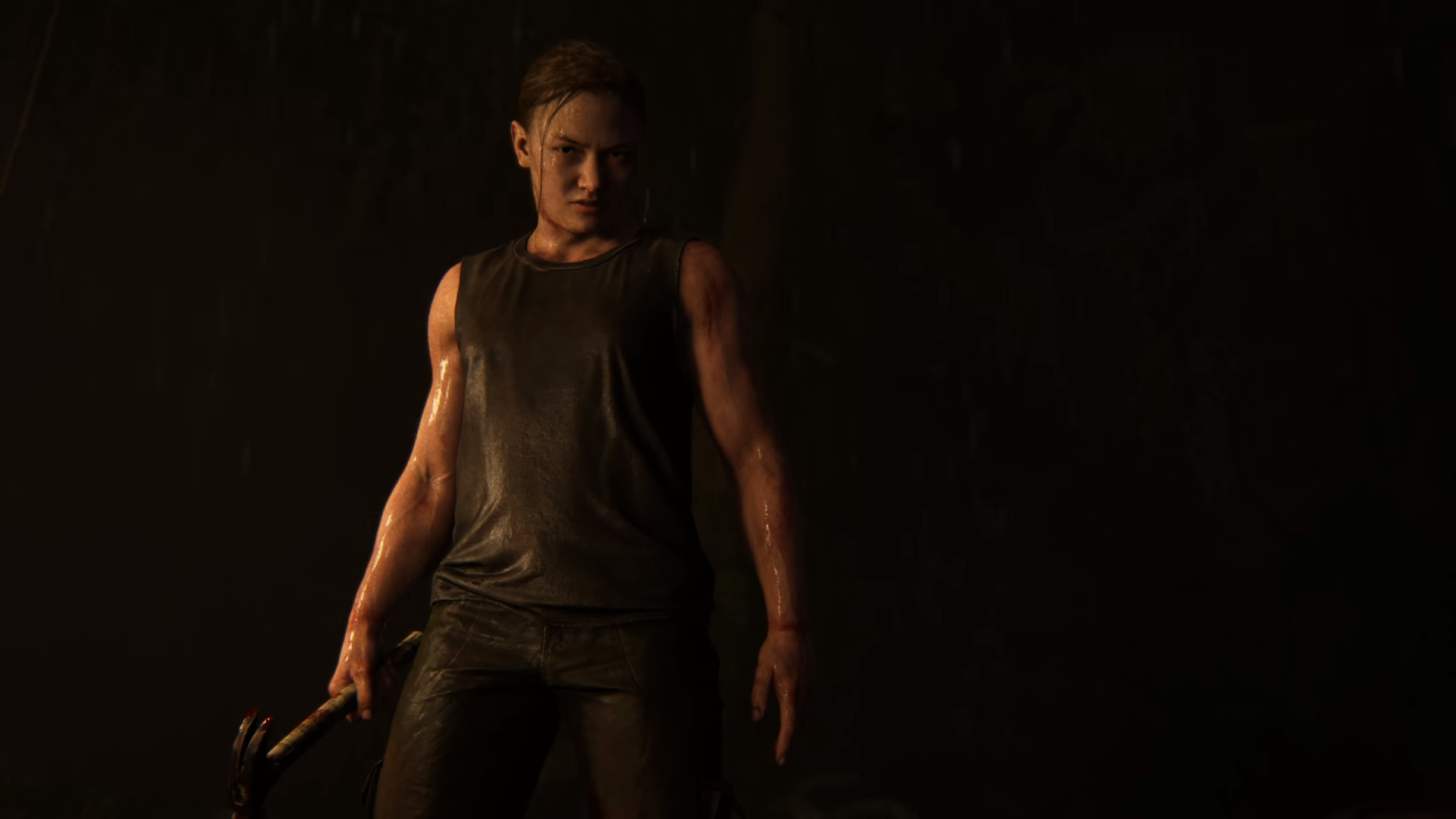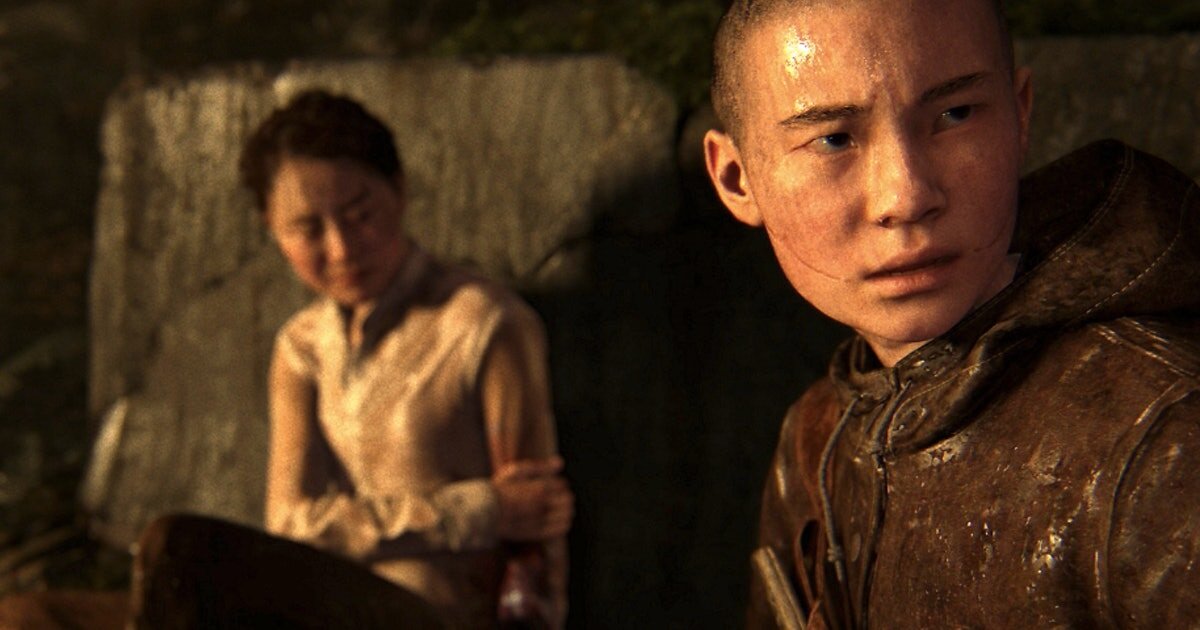[Review] The Last of Us: Part II and Why Imperfect LGBTQ Representation Matters
This piece contains
SPOILERS
for The Last of Us and The Last of Us Part II
This past month one of the most anticipated pieces of media was finally released. After numerous teases since 2013 and an official announcement in 2016, The Last of Us Part II was finally unleashed to the masses. A sequel/continuation to one of the highest reviewed video games of all time, Naughty Dog had an immense task ahead of them. But another aspect would provide an even more treacherous uphill battle: it featured an openly Lesbian lead.
Revealed in the first game’s story expansion Left Behind, our protagonist Ellie (Ashley Johnson) is, in fact, gay. The sequel picks up five years from where we left off, showing how life has continued in the wake of Joel (Troy Baker)’s decisive yet controversial decision. Ellie lives in Jackson, Wyoming while navigating a new relationship with Dina (Shannon Woodward), who herself is Bisexual. We slowly learn that Ellie’s once strong relationship with Joel is strained as we follow them in their day-to-day life, running routes, cleaning up the surrounding area of Infected. Meanwhile we see Ellie and Dina playfully flirt and explore their new and exciting relationship as it begins to form.
This leads to what is arguably the most infamous event in the game: the murder of Joel in retaliation for the murder of the Fireflies from the end of The Last of Us. It may not seem like this matters to the game’s LGBTQ representation, but it plays an integral part as it represents the trauma and eventual PTSD that Ellie suffers throughout and after the story.
Far too often I personally feel most LGBTQ media isn’t directly aimed at us but at the heteronormative masses. Let me elaborate, generally LGBTQ media portrays the community as pristine and perfect; maybe overly flamboyant, but with little to negative personality traits. Too long we’ve existed in the periphery of media, so now that we’re more visible, it sometimes can feel overly pandering.
Right off the bat, The Last of Us Part II puts our openly Lesbian protagonist through a trauma so severe, it sends her on a downward spiral, seeking revenge and retaliation for the death of someone she viewed as her own father. To me this speaks volumes. She’s angry, she wants his killers to feel the same pain as she felt.
She’s broken.
But it’s important to note that this trauma doesn’t come from her being a Lesbian; it’s a revenge motif explored constantly in straight media. By putting our queer protagonist in a similar state, it makes her more human and relatable. LGBTQ quite often face abuse and hatred in various forms throughout their lives and to have an imperfect LGBTQ lead in a high budget AAA game, it’s refreshing representation.
Following Ellie and Dina, the story moves to Seattle, Washington where they begin to hunt their newfound enemies. Here we get to see their relationship truly blossom. They start off nervous and giddy about their feelings for one another but eventually realize how much they really do love each other.
We even get an intimate moment of Ellie performing “Take on Me” by A-ha acoustically for an audience of only Dina. It remains one of the most sincere moments in the game as Ellie brings up how it reminds her of a previous bonfire where they noticed each other romantically for the first time. It’s genuinely fantastic to see a positive LGBTQ relationship in a massive budgeted video game, especially a Lesbian one without a massive age gap.
This extended Seattle sequence is also where we learn that Dina is pregnant from a previous relationship with Jesse (Stephen A. Chang), one of her and Ellie’s friends back in Jackson. This is also positive Bisexual representation in the form of Dina who it’s made clear has had romantic and sexual relationships with both Male and Female partners. I personally feel a lot of media sexualizes the idea of Bisexuality to play into the Cis/Het Male fantasies, and I truly believe The Last of Us Part II does a fantastic job of subverting common LGBT troupes by doing this.
Eventually at a massive turning point in the game we take control of Abby (Laura Bailey), Joel’s killer. Here, we learn that Abby’s father was the doctor Joel murdered to save Ellie in the previous game. Abby is a very traditionally masculine woman, with large muscles and strength that easily rivals Joel and the other men in either The Last of Us games. This is important because it plays into the expectations we have about how Gender roles play into modern video games. Ellie in Left Behind and The Last of Us Part II is overall physically weaker than Joel was and has to rely on her smarts and clever use of gear to navigate the world. On the opposite end of the spectrum we have Abby, who is an absolute powerhouse of strength. Her sections lead to some of the most violent and shocking displays of brutality in the game while simultaneously smashing gender norms.
In Abby’s section we eventually meet up with another new character in The Last of Us Part II named Lev (Ian Alexander) an and he’s probably one of the most important examples of representation in the game. Lev is a Female-to-Male Transgender person. Lev and his family were members of the religious cult known as the Seraphites, where he was assigned to be a wife to an elder member of the cult. In an act of rebellion towards the cult’s traditions, Lev shaves his head and begins living as his authentic self.
For many Transgender people the pure act of coming out is one of rebellion against what others want for you in the ultimate pursuit of happiness. Like many Transgender people before him, Lev faces retaliation and is forced to go on the run from the group that took him and his family in. Throughout this section of the game they torture him and his sister and deadname him numerous times.
A lot of the critique around this character shows that no trans person’s experience is the same. Some have lashed out at this storyline, but personally, seeing Lev’s struggles in a mainstream game is important because I don’t think many people in the general public realize that Trans people face this kind of conflict and retaliation every day. In 2019 alone there were no less than 27 Transgender people killed in the United States.
After a series of horrific events Ellie calls off her pursuit of Abby and returns home to Jackson. Several months later we learn Ellie is living a quiet life with Dina who has given birth by this point. Normally, this is where the happy ending would be. We see how happy Dina and Ellie are together and the life they’ve managed to create for themselves. But Ellie still struggles with terrifying moments of PTSD. So when Joel’s brother Tommy (Jeffrey Pierce) shows up to tell Ellie where Abby has been hiding, Ellie can’t let go of her trauma and heads to Santa Barbara, California to track her down, despite Dina begging her to stay.
Eventually, Ellie crosses paths with Abby and Lev and saves them from a rival faction. After a protracted struggle to finally get her revenge on Abby, Ellie has an unexpected changed of heart. Instead choosing to not go down the path that Joel has taken she decides to stop the cycle of violence in her life. Returning home, Ellie learns that Dina has left and taken the baby with her.
With her future unknown, Ellie leaves Joel’s guitar at her house and departs.
The Last of Us Part II is truly a rare experience in LGBT media. Featuring some thought provoking and positive representation, from the highs of a new exciting love, to the lows of facing retaliation for living authentically as yourself. It also addresses trauma and PTSD in organic and fantastic ways as it focuses on imperfect LGBTQ protagonists, all while telling an absolutely fantastic and heartbreaking story. As a member of the LGBT community myself, I have never felt more seen in a video game or any other piece of media.
The Last of Us Part II takes so many risks, but the payoff is absolutely worth the pain and heartbreak. I implore you to play this game and experience it for yourself.


![[Review] The Last of Us: Part II and Why Imperfect LGBTQ Representation Matters](https://images.squarespace-cdn.com/content/v1/5b39608d75f9eef54c62c3f0/1594129124953-N5QPD3KLAKAE02K8AX8T/80.jpg)




![[News] Amy Seimetz's She Dies Tomorrow Has a Trailer and Release Date!](https://images.squarespace-cdn.com/content/v1/5b39608d75f9eef54c62c3f0/1594233798995-ZFJ6T9RQ2BKZ3W7R83P6/SDT_key+art_HiRes.jpg)
![[Review] Relic is a Masterpiece and the Most Intense and Heartbreaking Movie I've Seen All Year](https://images.squarespace-cdn.com/content/v1/5b39608d75f9eef54c62c3f0/1593704216163-QREELT2WQDV81F5PCGT8/RELIC_DigitalKeyArt_jpg.jpg)
![[Review] I Am Not Okay With This is Here and At Risk of Doing The Thing: I Am Completely Okay With It](https://images.squarespace-cdn.com/content/v1/5b39608d75f9eef54c62c3f0/1582076765465-A1KMRSUJ4KXGEIOHIB2R/I-Am-Not-Okay-With-This-Netflix-poster-913.jpg)
![[News] HBO Gives Series order to The Last of Us](https://images.squarespace-cdn.com/content/v1/5b39608d75f9eef54c62c3f0/1605898957013-CY6FD5K7M8TCHA83W27X/unnamed%285%29.jpg)
![[News] HBO Releases New Image From Drama Series THE LAST OF US](https://images.squarespace-cdn.com/content/v1/5b39608d75f9eef54c62c3f0/1654804691192-63O32VXAOSXMTNK6TFFI/pedro-pascal-bella-ramsey.jpg)